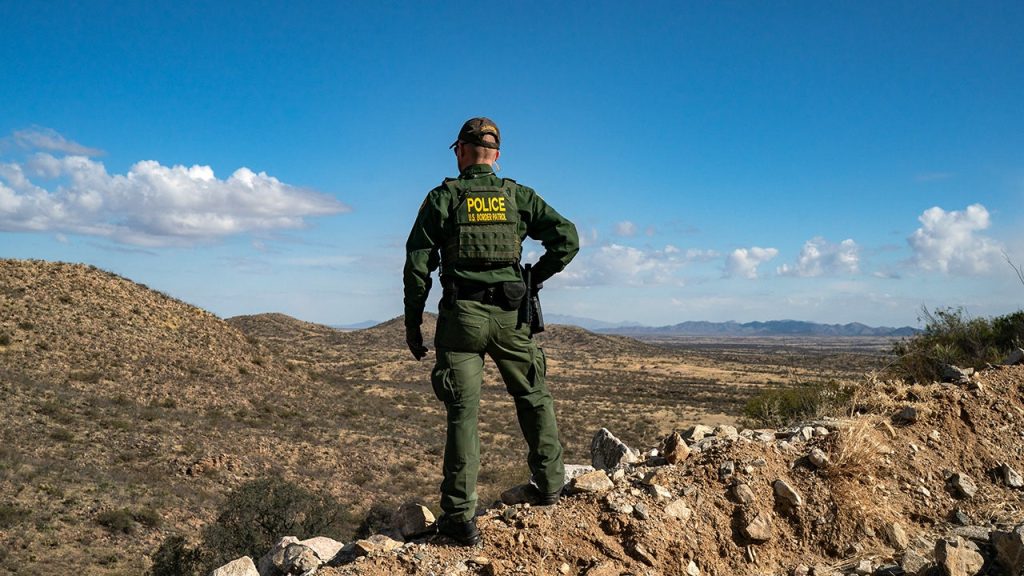The escalating tensions at the US-Mexico border have taken a disturbing turn, with reports emerging of Mexican drug cartels resorting to increasingly aggressive tactics against US Border Patrol agents. An internal memo, circulated amongst federal agents and obtained by several news outlets, reveals a chilling directive from cartel leadership authorizing the use of weaponized drones against border patrol and military personnel. This alarming development underscores the growing threat posed by these criminal organizations and the lengths to which they are willing to go to protect their illicit operations. The memo, titled “Officer Safety Alert,” specifically cites intelligence indicating that cartel leaders have greenlit the deployment of drones equipped with explosives to target US personnel operating along the border. It urges agents to exercise extreme caution, maintain heightened awareness of their surroundings, and report any drone sightings immediately. This directive follows a pattern of escalating cartel violence and underscores the increasingly dangerous environment faced by those tasked with securing the border.
The alleged cartel directive comes at a time of heightened border security measures implemented by the Trump administration, including increased deportation raids and a crackdown on illegal immigration. This intensified focus on border control appears to have directly impacted cartel operations, potentially disrupting their lucrative drug and human trafficking networks. The memo suggests that cartel leaders view the increased US presence as a direct threat to their profits, motivating them to retaliate against border patrol agents. This retaliation is not limited to the deployment of weaponized drones; other reports suggest a broader campaign of harassment and intimidation targeting US law enforcement.
Beyond the threat of explosive-laden drones, the memo also highlights a disturbing trend of online incitement against US immigration officials. According to reports, social media platforms frequented by cartel members contain posts urging illegal immigrants to engage in acts of disrespect and defiance towards ICE agents, including spitting, urinating, and defecating on their vehicles. Even more alarmingly, some posts reportedly call for targeted assassinations of border personnel. These online pronouncements, while potentially difficult to directly link to specific acts of violence, nevertheless contribute to a climate of hostility and underscore the cartels’ willingness to employ a range of tactics, both physical and psychological, to undermine US law enforcement efforts.
The increasingly volatile situation at the border is further exemplified by recent incidents of direct confrontation between cartel members and law enforcement. Last week, border patrol agents came under fire from cartel operatives in Fronton, Texas, highlighting the very real dangers faced by those patrolling the border. This incident, combined with the intelligence regarding weaponized drones and online incitement, paints a picture of escalating cartel aggression in response to increased US border security measures. The cartels’ willingness to engage in direct confrontation with law enforcement and their apparent embrace of increasingly sophisticated weaponry underscores the evolving nature of the threat and the need for robust countermeasures.
The evolving tactics of Mexican drug cartels, including the reported use of weaponized drones and online incitement, underscore the complex and multifaceted challenges facing US border security efforts. The cartels’ apparent willingness to escalate violence in response to increased enforcement pressures necessitates a comprehensive and adaptive approach to border security. This includes not only bolstering physical security measures and enhancing intelligence gathering capabilities but also addressing the underlying factors that contribute to cartel activity, such as the demand for illicit drugs and the vulnerabilities of border communities. The escalating tensions at the border also highlight the need for enhanced cooperation between the US and Mexican governments to effectively combat these transnational criminal organizations.
The escalating tensions at the border also sparked a controversial proposal from Senator Mike Lee, who suggested authorizing private entities to target drug cartels. Lee argued that empowering private security firms or trained civilians to disrupt cartel operations, including drug shipments and human trafficking, could offer a cost-effective solution to the border crisis. He proposed a system of “letters of marque and reprisal,” whereby private actors would be incentivized by a share of the seized assets. This proposal, however, raises significant legal and ethical questions regarding the use of private force in international affairs and the potential for unintended consequences. While the idea reflects the urgency of the situation and the desire for innovative solutions, it also underscores the complex and sensitive nature of the border crisis and the need for carefully considered responses.

